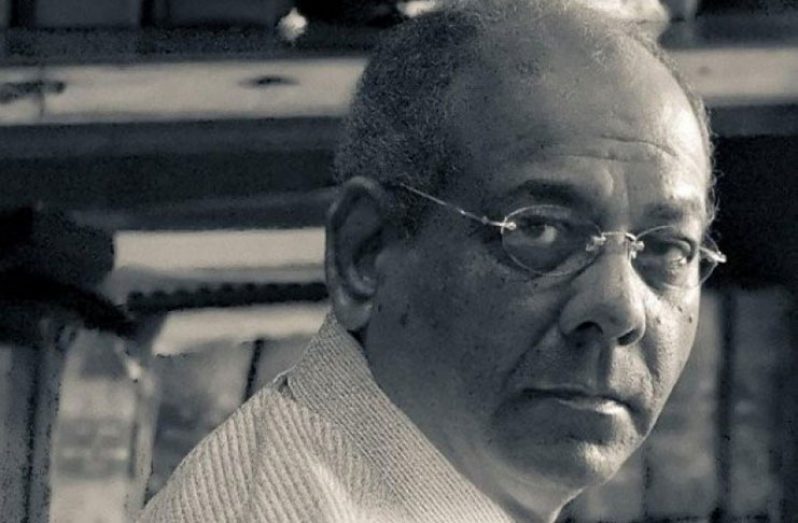FORMER House Speaker and Attorney Ralph Ramkarran believes that should the Caribbean Court of Justice (CCJ) uphold the ruling of the Court of Appeal in the presidential term limits case, neither side of the political divide should have a problem having a referendum.The Court of Appeal by a two-one majority on Wednesday upheld the High Court ruling that the presidential term limit is unconstitutional and void.
Attorney General Basil Williams and Speaker of the House, Raphael Trotman had appealed against the decision by former Chief Justice, Ian Chang, in 2015 to remove the presidential term limit here.
The case was brought by Cedric Richardson, a resident of Georgetown, just before the May 2015 General and Regional Elections, to challenge the Amendments made to Article 90 of the Constitution that were enacted in 2000 following a bipartisan Constitutional Reform Process.
Justice Chang ruled, among other things, that the presidential term limit was unconstitutional without the approval of the people through a referendum.
However, in his weekly column, Ramkarran said the Opposition People’s Progressive Party (PPP) and the governing APNU+AFC coalition Government have unanimously supported the two-term limit on presidents and noted that in the case of the PPP, it was that party that unanimously decided in 1994-5 to propose to the Select Committee on Constitutional Reform of the 6th Parliament (1992-1997) that a president only serves two terms.
He noted too that the said party did not change its position to the Constitutional Reform Commission in 1999-2000 which he chaired.
“The two-term presidential limit, supported by the PNCR, was adopted by the Constitution Reform Commission and formed part of its recommendations. Article 90(3) of the Constitution was duly amended by Act No. 17 of 2001, unanimously passed in the National Assembly, to limit the presidential terms to two.”
THREE WAYS
The former Speaker reminded that the Constitution of Guyana can be amended in three ways: by a simple majority, a two-third majority and by referendum. Article 90 requires a two-third majority to be altered.
Ramkarran noted that the “unlimited right to hold the position of head of government will inevitably lead to authoritarianism and corruption,” and cited leaders like Dr Cheddi Jagan and Mrs Janet Jagan and Desmond Hoyte who all supported term limit.
“Both main political parties should, therefore, have no difficulty in supporting a referendum. For those who might be tempted, if the CCJ upholds the Court of Appeal, the Bolivia experience is salutary. The electorate recently rejected the attempt by the popular President Evo Morales of Bolivia to secure a constitutional amendment by way of a referendum to run for a third term,” he stated.
The attorney noted too that if Attorney General Williams and Attorney Roysdale Forde, attorney for Trotman do not succeed at the CCJ in their appeal against the ruling of the Court of Appeal, then the Government will have to hold a referendum.
“The PPP would have no reason not to support it. A convenient time would be for a referendum to piggyback on Local Government Elections in 2019 to save costs. The Government may wish to complete the constitutional reform process by then so that if a referendum is required on other issues, it can be held at the same time.”
Ramkarran said the matter is one of great jurisprudential interest and constitutional importance, pointing out that if the CCJ upholds the decision then the issue becomes one of “expensive inconvenience” to hold the referendum.
NO INTEREST
He believes that since both the two main stream political parties, the PPP and the People’s National Congress (PNC) support a two-term presidential limit and former President Bharrat Jagdeo has stated that he has no interest in running for a third term, then the “outcome of a referendum would be a mere formality.”
“It would be expected, of course, that the leadership of the PPP would resist internal calls, if made by orchestration or otherwise, to change its long-standing position in support of term limits,” added Ramkarran.
In an article published on September 3, 2009, entitled “Term Limits,” the astute Attorney noted that most countries in Latin America impose term limits while most countries in the Westminster system and in Europe, do not have term limits, with a few exceptions, like Singapore and Malaysia.
“The mixed success of, but unmistakable trend towards, term limits, is demonstrated by the situation in Congo where President Kabila is attempting every ruse to hold on to power, but is being pressured to uphold the two-term limit. This situation is yet to be resolved. On the other hand, giving a nod to reality, former British Prime Minister, David Cameron, undertook to serve only two terms. In the Caribbean, there are frequent changes of governments but no term limits,” said Ramkarran.
No likely issue with referendum — should CCJ uphold third term ruling, says Ramkarran
SHARE THIS ARTICLE :
Facebook
Twitter
WhatsApp




.png)









